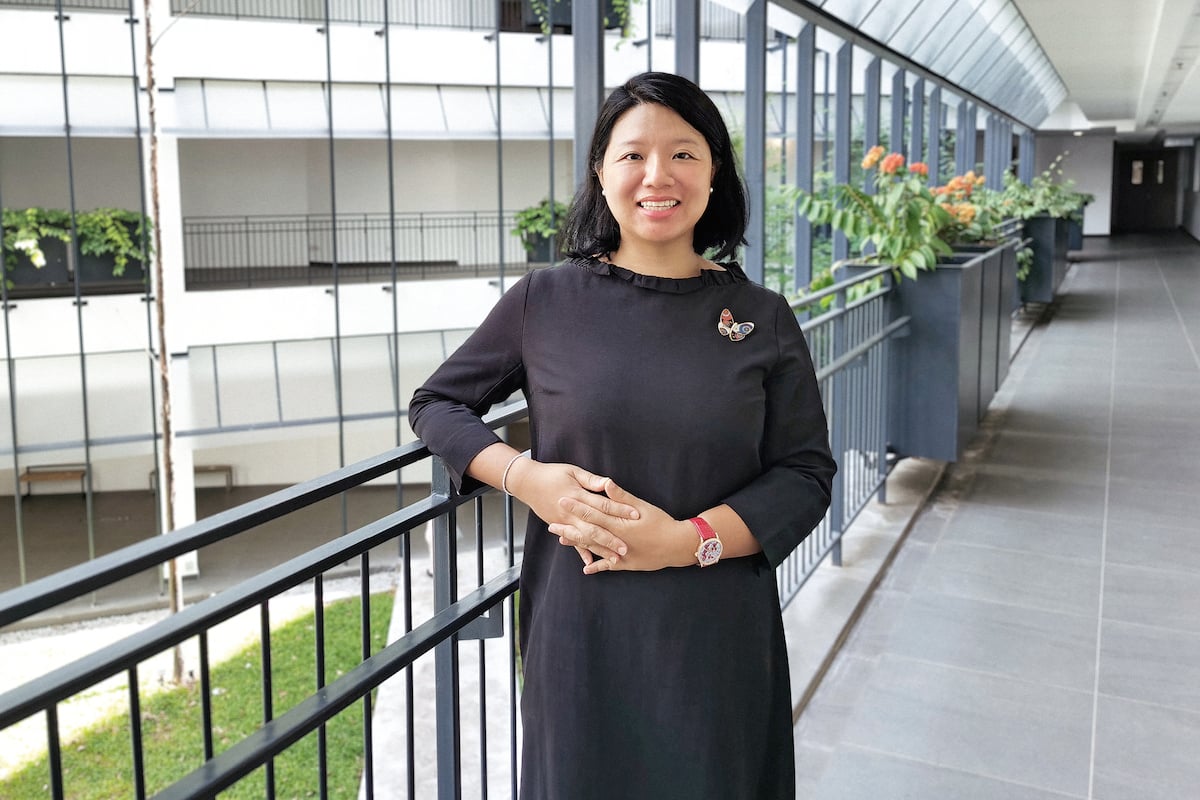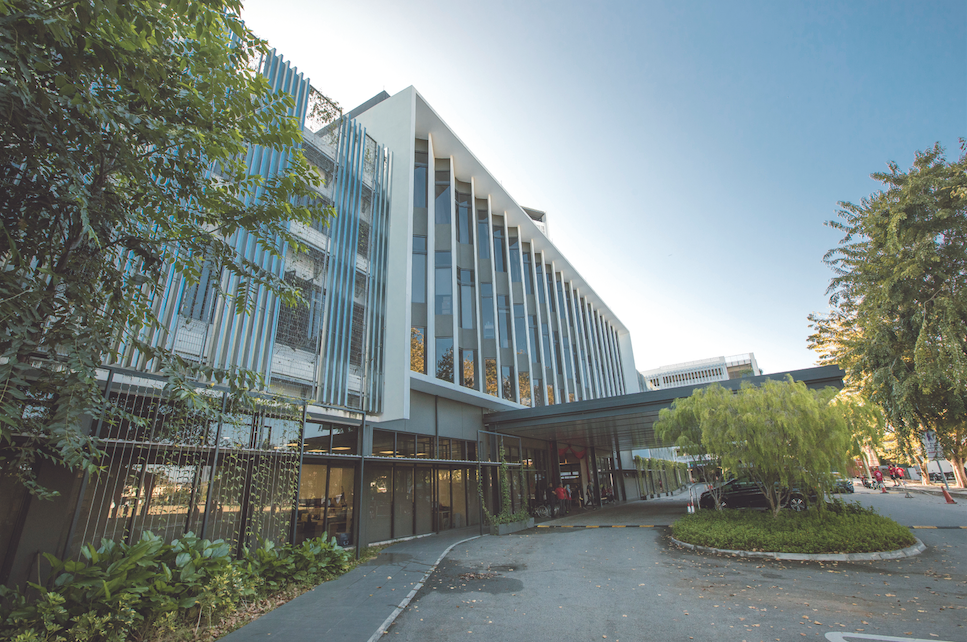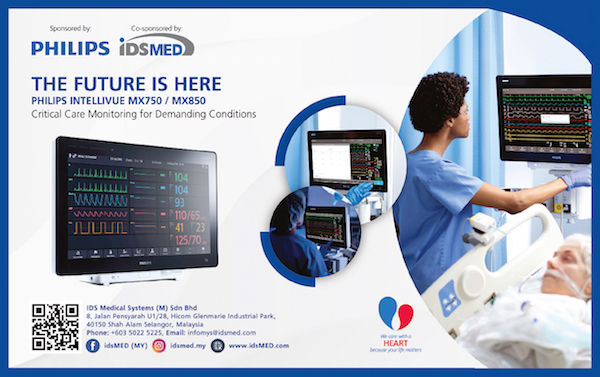Even as a physician, Hui Ling Tan always wanted to make more of a difference to people’s lives. It’s what drove her to continue her medical studies with a master’s in public health.

Sadly and ironically, it was her own father’s health problems that brought her back to Malaysia to take over his role in the hospital management of Bagan Specialist Centre, with a second hospital called Oriental Melaka Straits Medical Centre under construction at the time.
“I helped set up and run the Melaka project,” Hui Ling explains. “Then once that was stabilised with someone else taking on the role of CEO, I initiated a project to expand the Bagan Specialist Centre. Now I’m sitting on the board as Managing Director for both hospitals.”
Of all the industries recently affected by COVID-19, the health and medical professions have been at the forefront, with many challenges along the way. “When the virus first hit us in March and it was announced by the World Health Organization as a pandemic, we didn’t know what to do,” she recalls.
“Despite the fact that we are in health care, it was something new for most of our staff and doctors. Even when SARS hit us many years ago, it was never as big as this.
“Fortunately, we were able to work very closely with Malaysia’s Ministry of Health. There were lots of discussions and information updates from the ministry side, and we worked together to deal with patients, tracking the positive cases.
In our vision and our mission, we emphasise wholeheartedness. I think that is the most important part of being healthcare providers.
It was very important for us that the ministry supported us. At the beginning, it also took over the care of all the positive cases – none of these were managed in the private sector but were transferred to government hospitals instead.
“We focused on the non-COVID patients for those first few months. A lot of private patients were very worried about being near any healthcare institutions, so we were actually very quiet. The only area in which we were kept busy was screening any patients that entered our premises from Accident and Emergency.”
Keeping staff healthy
It wasn’t only about screening and protecting the patients though; there was also a need to look after the staff properly when COVID-19 hit. “I think the most important thing was getting the team to understand that we are in this together,” Hui Ling says.
“And giving them the confidence that we can do it and reassuring them that we will find the necessary resources.” At that time, there was also limited access to personal protective equipment. “We faced shortages with things as simple as masks, gloves and gowns,” she remembers.
“We had to essentially grab whatever we could find, regardless of the quality, because we had no choice. We just had to make sure that our front liners could be well protected.” Hard though the pandemic has been, it has forced Hui Ling and her team to look at how they do things, and she believes some positives will accrue from that time.
“I feel that the past 12 months has been a good period for us to sit down and rethink what we want to do in the next phase,” she reflects. “We know the pandemic will be over, so now is the time for us to realign ourselves and reset the targets for the next phase of growth for the group.” Those targets include expansion – not just in terms of another hospital, but also to make the healthcare journey for our patients more convenient and seamless. As Hui Ling puts it, “Filling the gaps where there are unmet needs of our patients.”
A localised solution
As a result of the pandemic, a trend has emerged for restricted movement, Hui Ling reveals. “People will only travel within 5–10 kilometres from where they live for their medical needs,” she explains.

“So it’s important that we organise our services to be near them. Traditionally, the mindset is that patients will go wherever their doctors are, but instead, patients are now seeking healthcare services that are near to them, and also good enough for them to use. So rather than centralising things, we are looking at how we can decentralise certain services that will ultimately benefit our community.”
Helping the community is what drove Hui Ling to qualify for her position and clearly, it is what fuels her ambitions for the future. “I think all healthcare institutions have a vision to be the leader or give the best health care. But what does that actually mean?” she asks rhetorically.
“I think that to achieve this, you have to use your heart. Hence, in our vision and our mission, we emphasise wholeheartedness. I think that is the most important part of being healthcare providers.” That wholeheartedness very much extends to her staff as well.
“In this crisis, some companies have taken the stance to either reduce salaries or let certain contract staff go. But we made a point during the pandemic to keep our staff together. If it’s been difficult for us as a hospital, it’s been more difficult for them as individuals.”
Strong partners
Making up the vital triumvirate of Hui Ling’s wholehearted vision with staff and patients are the hospitals’ trusted partners. A key one has been Philips Healthcare, which has literally become a lifesaver, working alongside Hui Ling.
“They’re more commonly known for home gadgets, but actually they are very big in medical equipment worldwide. I first introduced the early warning score system concept in Singapore where I was working there,” she explains.
“It’s a clinical monitoring tool to help healthcare providers – the nurses and doctors – to recognise when a patient is deteriorating objectively and early enough to make a difference. At the time, it was all done manually and, through the years, different companies have invested in it and automated this tool. When I first came back, I wanted to bring it to Malaysia and, as I knew that Philips had it in Singapore but not here, each time I met with Philips, I talked to them about it.”
After two years of discussions and successful trials elsewhere in the world, Hui Ling managed to negotiate a partnership, becoming Philips’ first client in Asia–Pacific to use the automated early warning score system. A clinical specialist from Philips even worked with Hui Ling to refine the system for Malaysia.
“The system is now successfully implemented in both our hospitals. Our nurses’ workload been reduced and the quality and safety part of our care has improved significantly. We’ve seen a 50% reduction in our hospital mortality rates and a 30% reduction in ICU mortality rates,” Hui Ling says proudly. “That is really lifesaving.”
Proudly supported by:




